12 Best Fitness Tracking Apps of 2024
Key Takeaways
The fitness sphere has exploded recently, especially regarding personal technology. There are new ways to track your fitness levels, apps to help you eat healthier, and even guided plans on building muscle. And that’s just the start!
There are so many ways to stay fit and many technologies to help us reach our fitness and health goals. Apps for overall physical and mental health, nutrition, and even specific ones for fitness and weight loss are becoming more and more popular.
Whether you’re looking for an app to log calories burned, track what you eat, provide workout plans, or give you access to professional fitness coaches, these fitness tracking apps can help with whatever you're looking for.
Read on for our breakdown of the top 12 best fitness apps of 2024!
The Benefits of Using a Fitness App Versus a Gym Membership
If you’re new to the gym or simply need some extra inspiration when it comes to your fitness routine, you may be wondering if fitness apps are a good idea. While there are still benefits to a traditional gym, one of the benefits of using a fitness app is that you can stay fit in the comfort of your home with convenient home workouts and the proper equipment.
That’s a huge bonus when you consider that many fitness apps have classes and videos to exercise along with, many of which even offer a level of personalization to tailor exercises to your fitness levels. Some apps even connect you with other users and lend a sense of community to your workouts.
Others put the fitness data in your hands, allowing you to track your fitness levels by pairing the app with a wearable device or smartwatch and stay on the path to achieving your health goals. With the flexibility they provide, fitness apps are a great option for anyone who may not have time to head to the gym.
A Quick Look at the Best Fitness Tracker Apps
Before we get into the specifics of each app, here's a quick look at our favorite fitness apps and what they're best for.
- Best for Metabolic Health: Nutrisense
- Best for Runners: Strava
- Best for Activity Tracking: Apple Fitness+
- Best for Custom Workout Plans: Gymshark Training
- Best for Cardio Exercise: Runkeeper
- Best for Gym Workouts: JEFIT
- Best for Good Causes: Charity Miles
- Best for Short WOrkouts: Daily Workouts
- Best for Deeper Insights: PEAR Sports
- Best for Customizable Workouts: Sworkit
- Best for Live Classes: FitOn
- Best for Nutrition Tracking: MyFitnessPal
12 Fitness Tracking Apps to Try Out
Here are our top 12 picks for the best fitness apps for metabolic health, customizable workouts, activity tracking, and more.
1) Best for Metabolic Health: Nutrisense
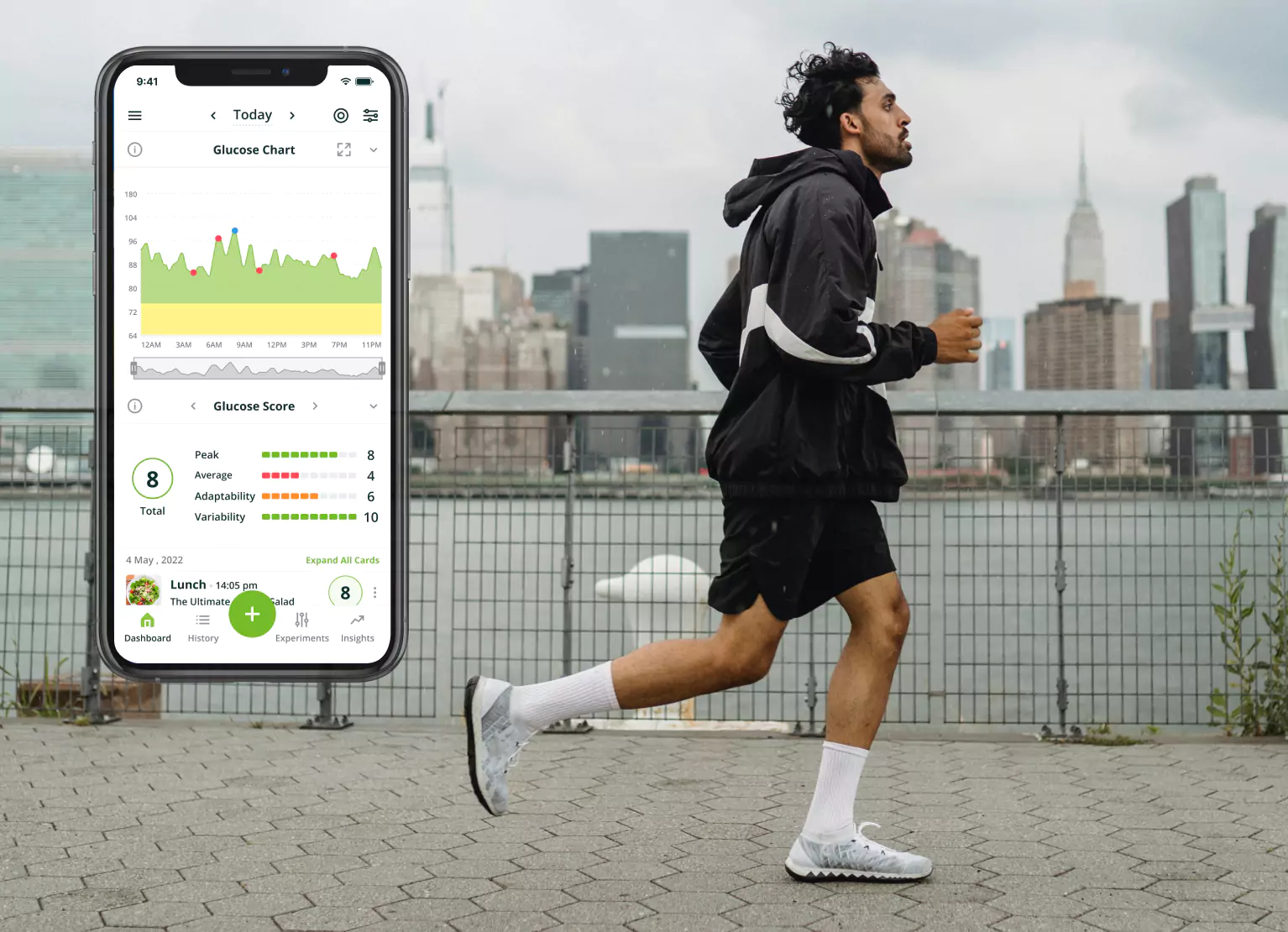
The Nutrisense app works with continuous glucose monitors (CGMs) to provide insights into blood sugar management and help you optimize your health. Using a CGM for fitness training allow you to make informed decisions about lifestyle choices like your fitness regime by providing real-time data on blood sugar levels.
The best part about this app is that you'll also receive complimentary 1:1 guidance from a credentialed dietitian or nutritionist when you sign up for a commitment program.
Pros
- The app has a clean, simple interface.
- All your data from your CGM is imported into the app.
- The dietitian support helps you understand the data and tailor your fitness goals.
Cons
- You’ll need a Nutrisense membership.
- Some CGM sensor models require an NFC-compatible phone to import data from the CGM.
Download Nutrisense for Android, Apple
{{rich-text-cta-3="/style-guide"}}
2) Best for Runners: Strava
Strava is a GPS-based running app that also functions as a social media platform for runners, swimmers, and cyclists. You can connect your wearable devices, such as Garmin, Apple Watch, or Coros to the Strava app and log your daily workouts as well as analyze your overall performance.
Pros
- The social media features allow you to follow other athletes and share your own progress.
- Each activity comes with performance insights, allowing you to take a deeper look at your heart rate, pace, and more.
Cons
- The premium version is required in order to access certain features.
- The app shows a map of your route after each activity which can pose privacy concerns, although you can change the privacy settings if you choose to.
3) Best for Activity Tracking: Apple Fitness+
Fitness+, Apple’s tracking app connects to your Apple watch and displays fitness data collected by the device. You can view a daily summary of your steps, time spent exercising, and time on your feet.
Each activity you log with your watch is also collected in the app, so you can view insights such as distance and pace, calories burned, and average heart rate. The Apple Fitness app also displays weekly, and monthly trends, and awards you with digital prizes when you reach certain benchmarks.
This app also includes a premium version, called Fitness+, that provides workout videos and personalized training plans you can follow for a monthly fee.
Pros
- Paid version is less expensive than many competitor apps with similar workout videos.
- An easy way to track all your workouts in one place and analyze data all together.
Cons
- The activity tracking feature of this app only works with the Apple watch, though premium workout videos can still be accessed on other Apple devices.
4) Best for Custom Workout Plans: Gymshark Training
The Gymshark app brings a community of active people together through a vast library of workout and training videos to inspire you to get moving. Gymshark also provides workout plans that you can choose based on your training goals that can be done from the gym or even at home.
Pros
- Free for anyone to access.
- Includes step-by-step workout videos that you can easily bookmark or add to your own customized training plan.
Cons
- Doesn’t include a calendar for tracking or planning your workouts.
5) Best for Cardio Exercise: Runkeeper
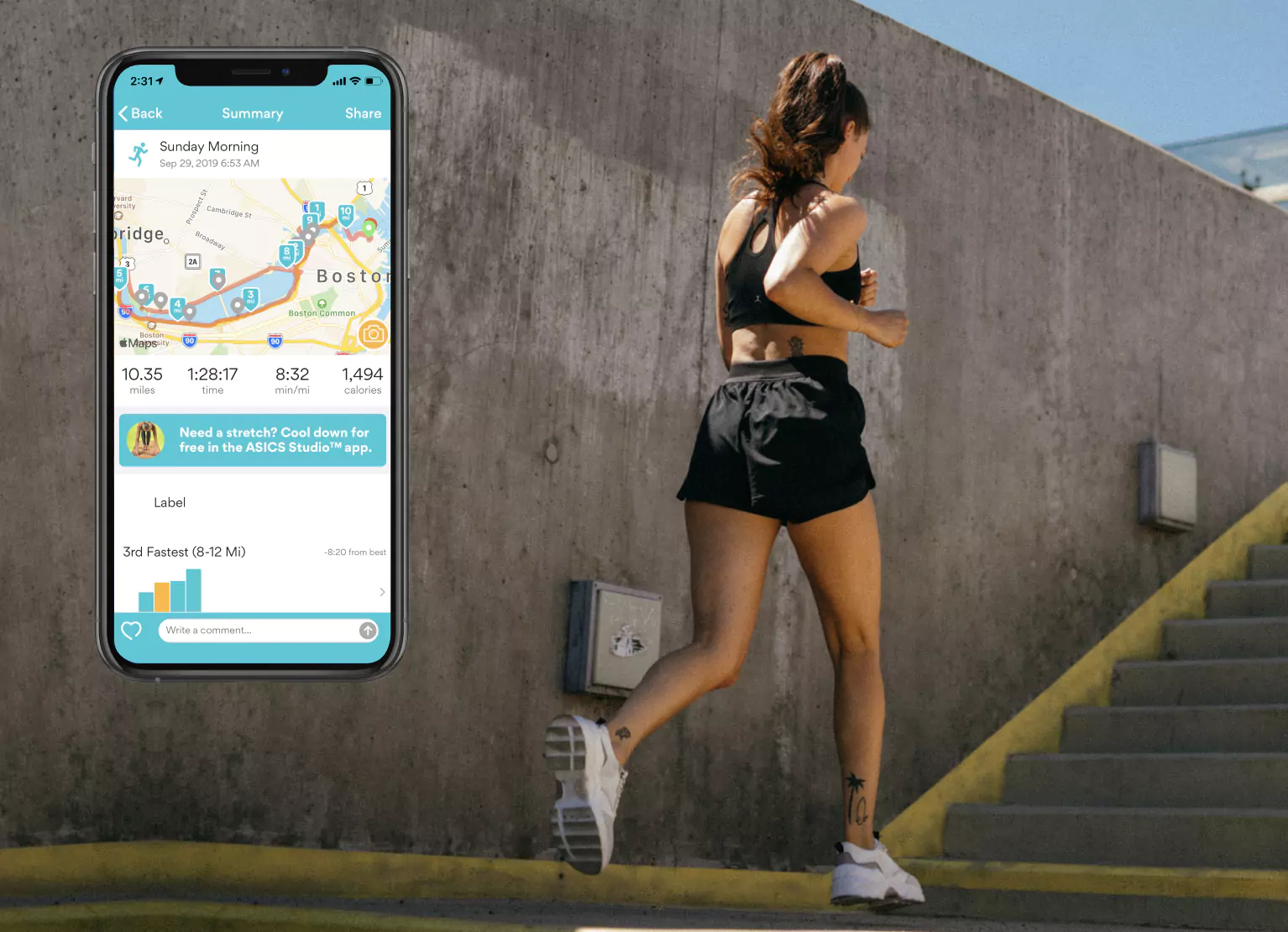
Runkeeper is a fitness tracking app that uses GPS to record your speed and the distance you cover during a run, giving you the data you need to break down a particular workout. Besides running, the app can track you when performing cardiovascular activities, including walking, cycling, hiking, and skiing.
You can use the app to meet your fitness goals, and there is even a training option for when you want to prepare for competitive running events.
Pros
- It's well-suited to beginners.
- It allows for setting goals and targets.
- You get audio feedback during runs.
Cons
- Live run tracking, advanced metrics only in the paid version.
- It’s better suited to beginner runners.
6) Best for Gym Workouts: JEFIT
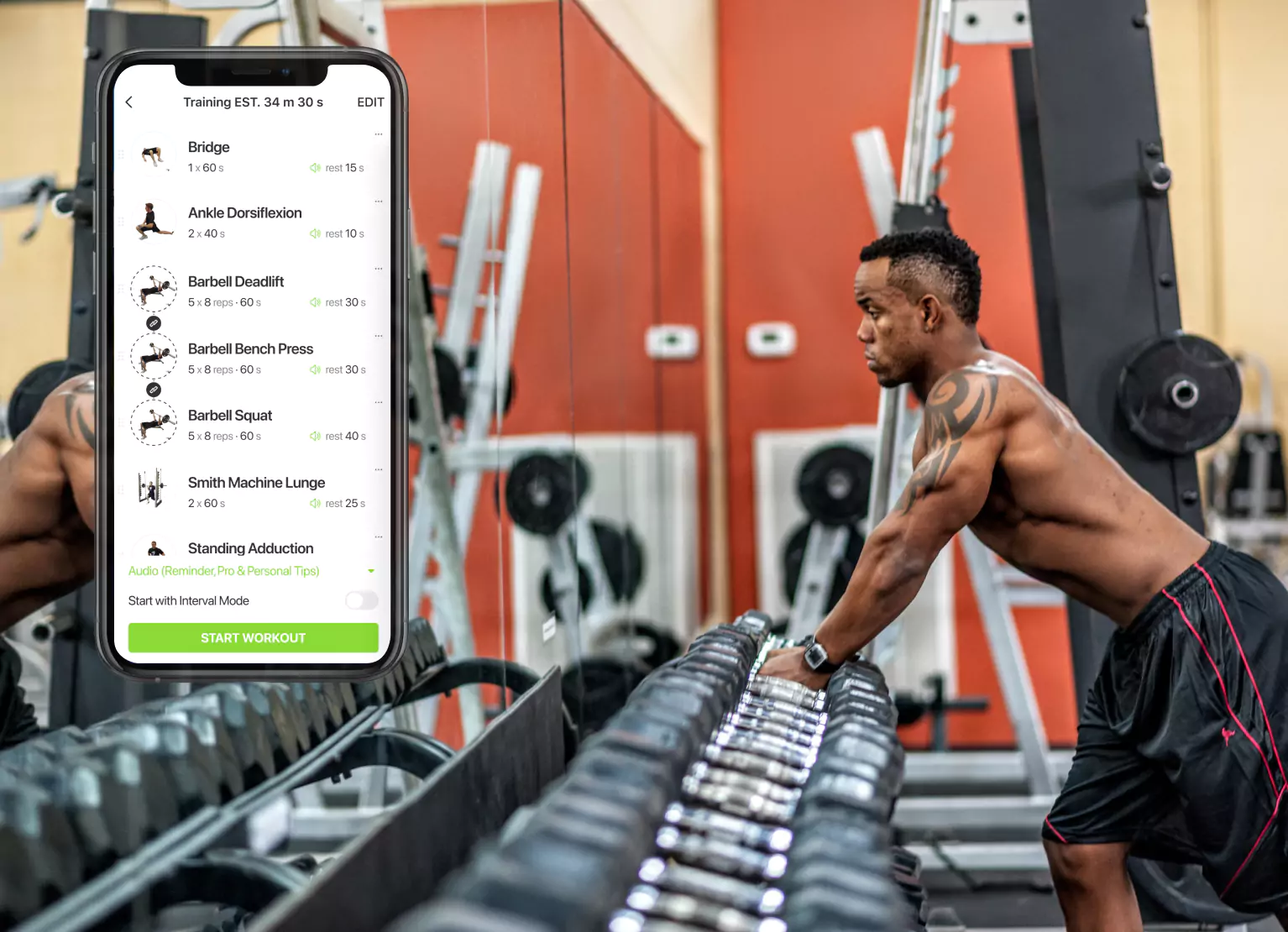
The workout tracking app JEFIT puts you in control of your gym routine. It’s for those who want to get the most out of muscle-building, so it is a bit niche, but it does have valuable tips and tools to track your muscle-building workouts.
The JEFIT app is beneficial if your routine has become monotonous. The paid version is relatively inexpensive compared to other fitness tracking apps and includes progress reports, premium workout routines, and priority support.
Pros
- There are helpful instructions to help you perform exercises.
- You can customize the workout plans.
Cons
- It can be more focused on muscle-building than overall fitness.
- It's not the friendliest user interface for beginners.
- The free version has ads.
7) Best for Good Causes: Charity Miles
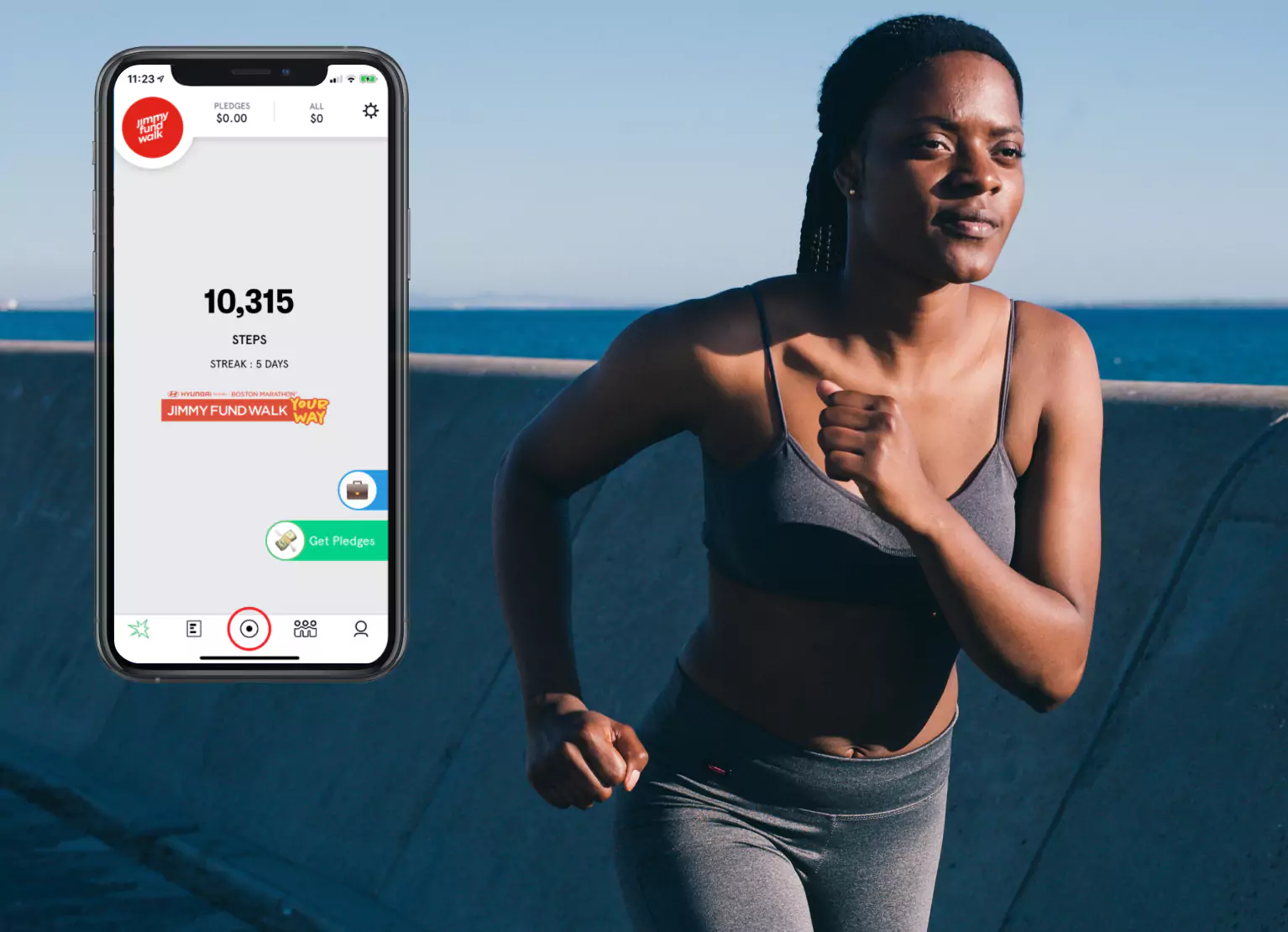
Charities funded by regular people who exercise sound almost like a Utopian dream: You download a free fitness tracking app, choose a charity from a list, and walk, run, or bike, and the charity gets paid out for every mile you complete.
But that’s what the Charity Miles app does, and it tracks your workout via GPS, donating money to the charities you pick. You can stick with a single charity or pick a new one each time you exercise. The concept is interesting and serves as motivation for exercising.
Pros
- You can choose a different charity each time you work out.
- You'll get fit and also feel good about donating to charities.
- It can integrate with other fitness tracking apps.
Cons
- The user interface can be confusing.
- The design may be a bit unintuitive at times.
8) Best for Short Workouts: Daily Workouts
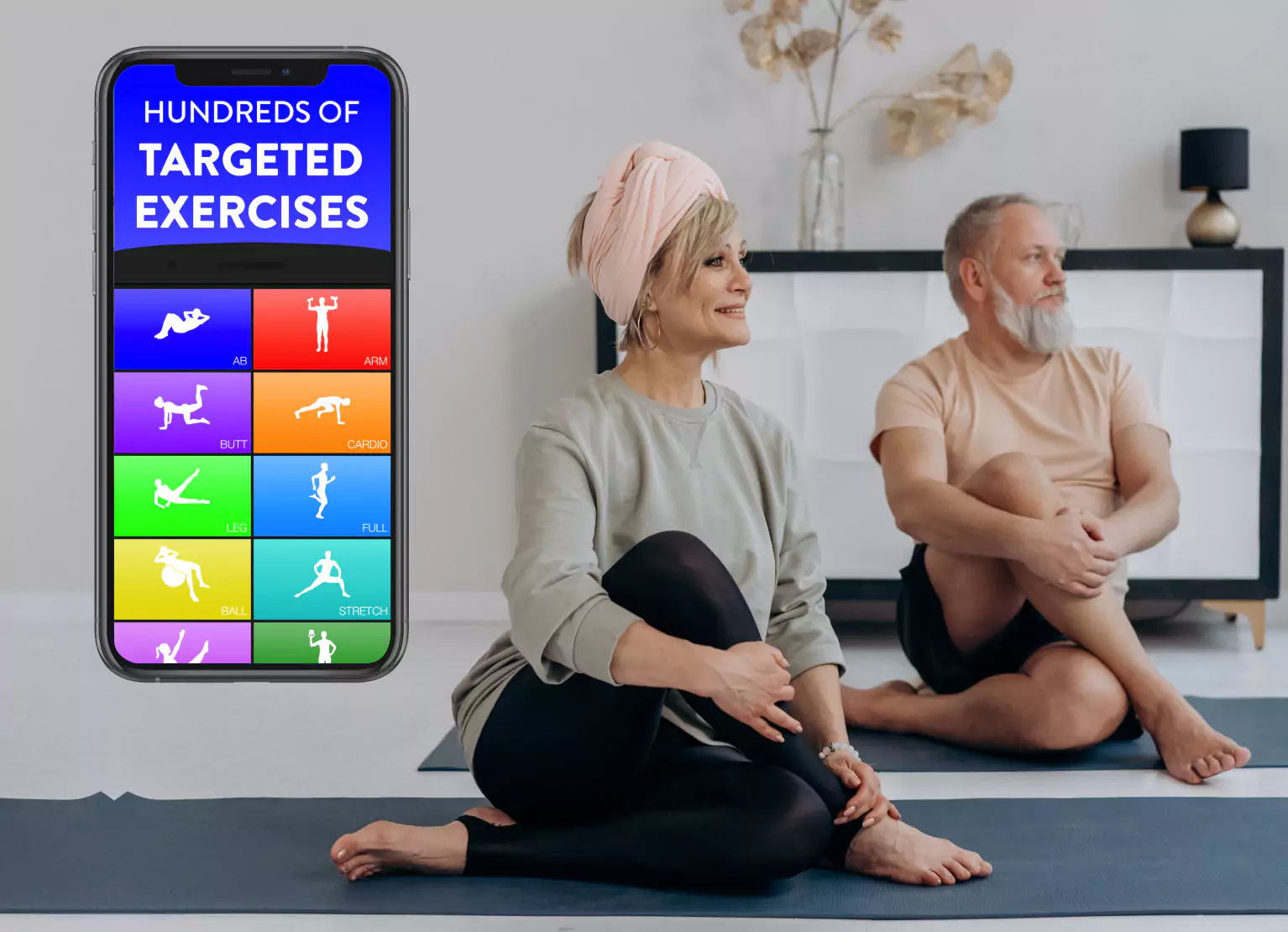
The Daily Workouts app has short- and medium-length video exercises you can follow along with, targeted at different muscle groups. Certified personal trainers demonstrate the routines, and they have on-screen instructions and countdown timers, so you know how long each set will be.
The paid version is ad-free and has more workout routines, including Pilates, kettlebell, stretch, and ball workouts.
Pros
- It has a simple interface.
- The on-screen instructions are by certified trainers.
Cons
- The free version only includes basic exercises.
- It may not be the best motivational tool for some.
- The free version has ads.
9) Best for Deeper Insights: PEAR Sports
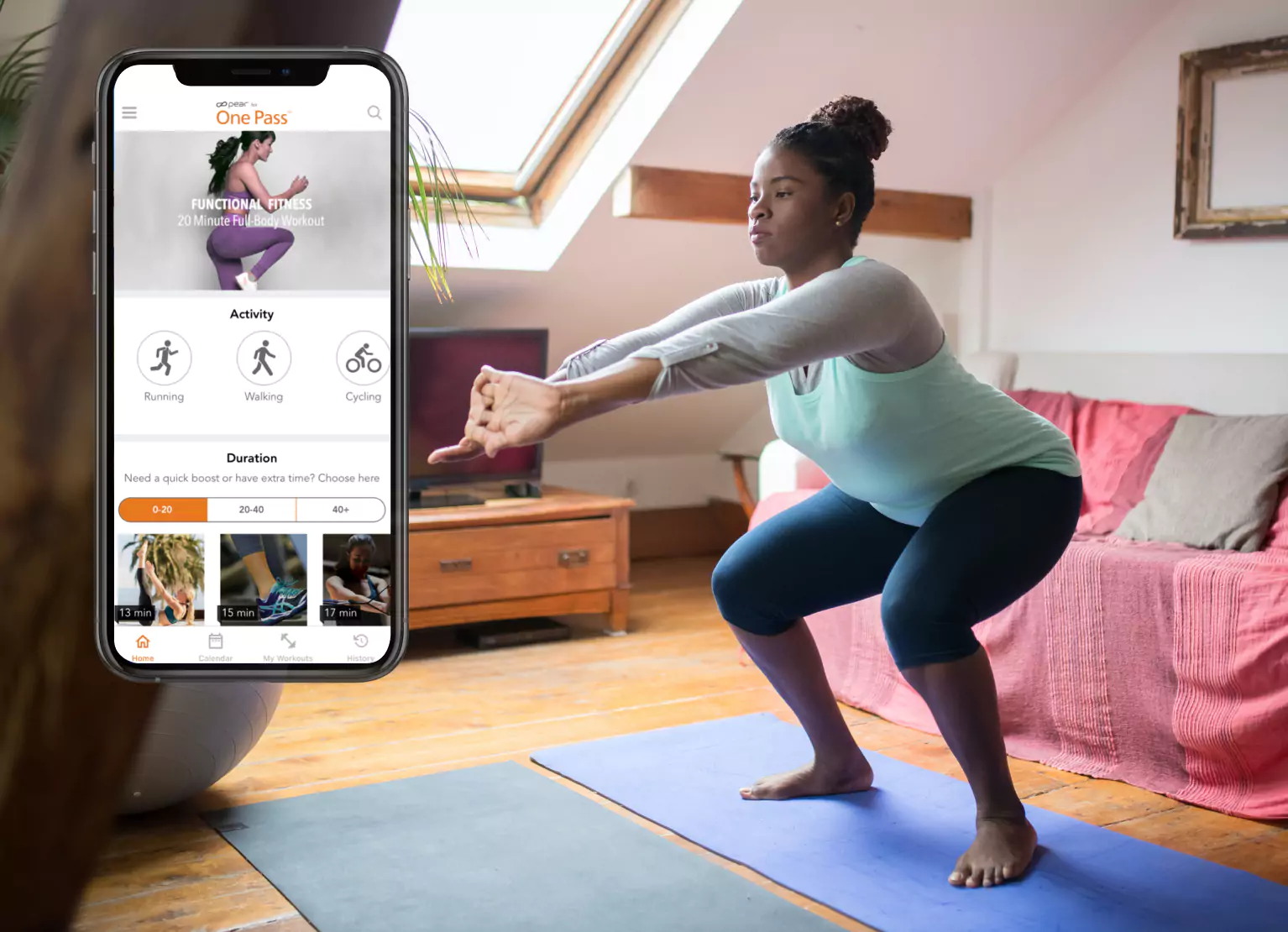
The PEAR Sports fitness app connects you with a vast selection of workouts and fitness training exercises spread across various categories. There is no free version; it is subscription-based only.
You’ll also need a wearable fitness device that tracks your heart rate.
However, you get personalized coaching based on your heart rate while exercising, and you can track your calories burned, pace, distance traveled, time spent exercising, and heart rate in the app.
Pros
- It has an extensive library of workout routines.
- They partner with fitness brands for detailed training plans.
- It offers relatively cheap subscription plans.
Cons
- There's no free version.
- It requires additional devices such as fitness wearables.
10) Best for Customizable Workouts: Sworkit
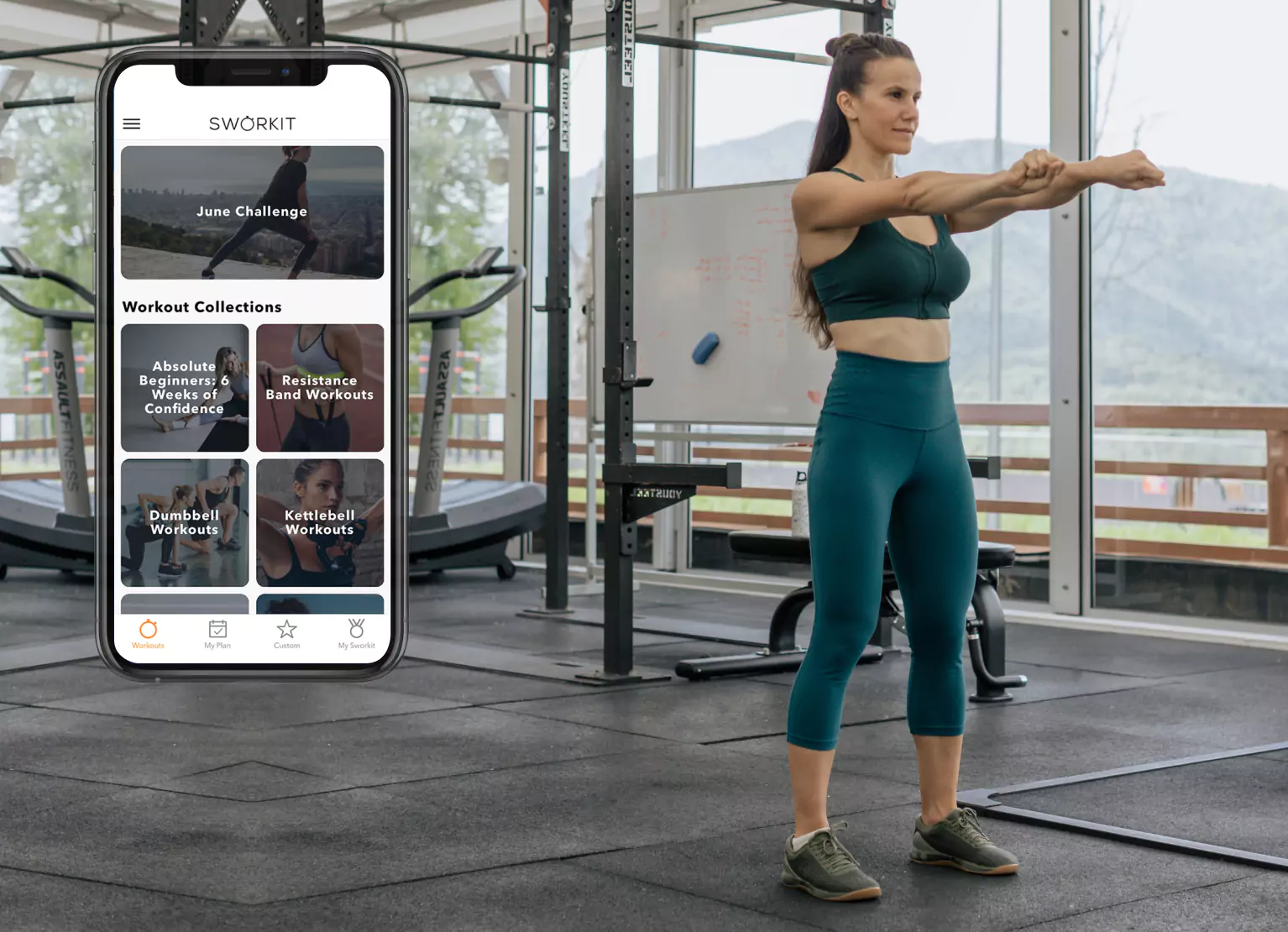
An app that focuses on fitness plans and tracking to help you reach your goals, Sworkit makes for a lovely workout companion. The app features a massive range of exercises and workouts, and you can customize workouts to find something that suits you best. The paid version adds trainer support and is relatively affordable.
Pros
- There's an extensive library of exercises.
- You have access to customizable workout routines.
- The video and audio guides ensure good form.
Cons
- The exercises are pretty basic.
- Advanced users might be left wanting.
11) Best for Live Classes: FitOn
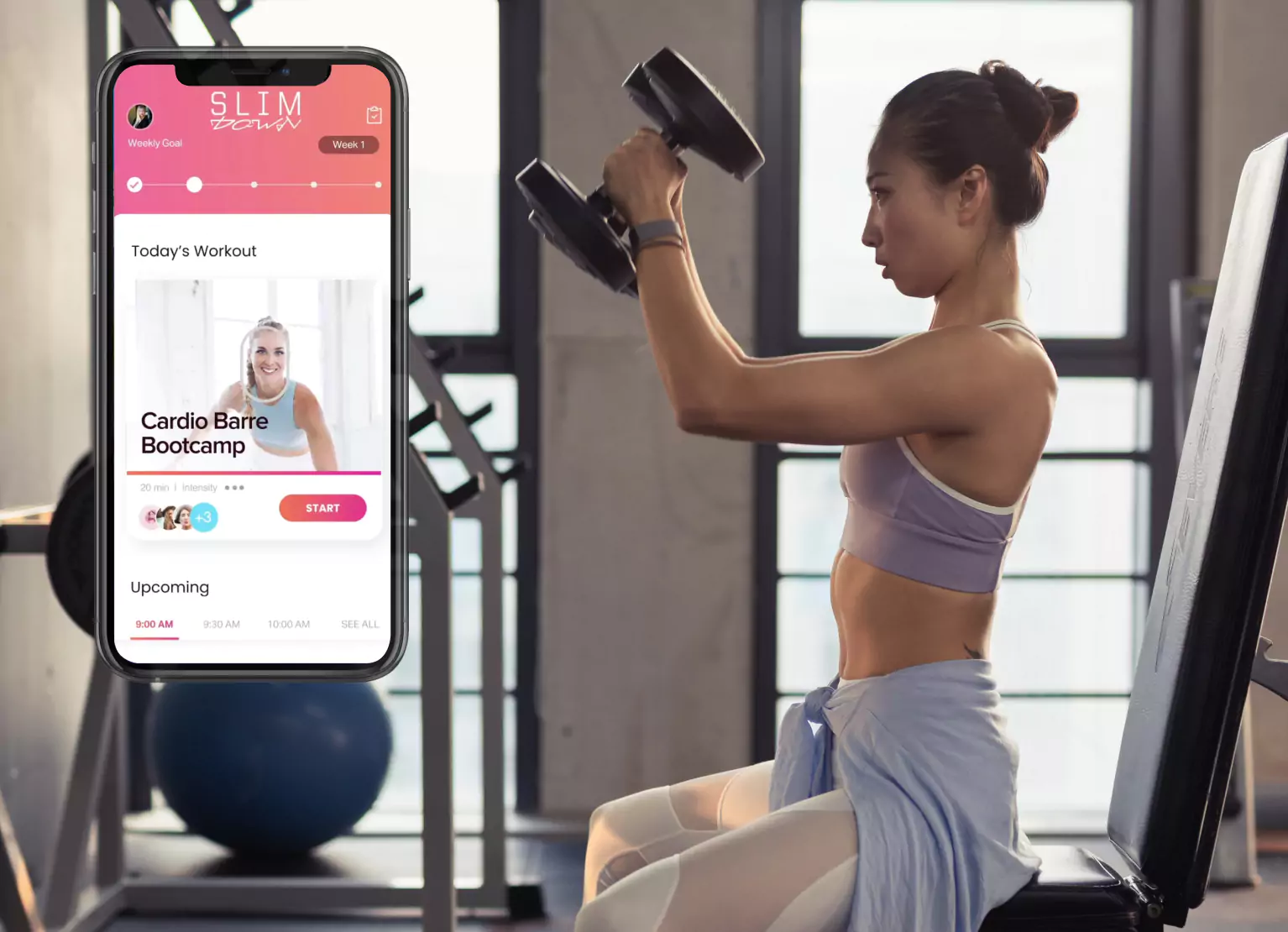
One of the more recent apps, FitOn, offers free workout and fitness plans. There is a paid version of the app, too, which includes personalized meal plans, workout music, and the ability to connect a device to monitor heart rate.
The FitOn platform has a good selection of workout videos spread across various exercise types; however, there seems to be no overarching structure to the videos.
Pros
- All the workouts and exercises are free to access.
- There are decent workout video options.
- It includes exercise videos from celebrity trainers.
Cons
- The real-time heart rate monitor functionality is only available with a paid subscription.
- The exercise videos are separate entities.
12) Best for Nutrition Tracking: MyFitnessPal
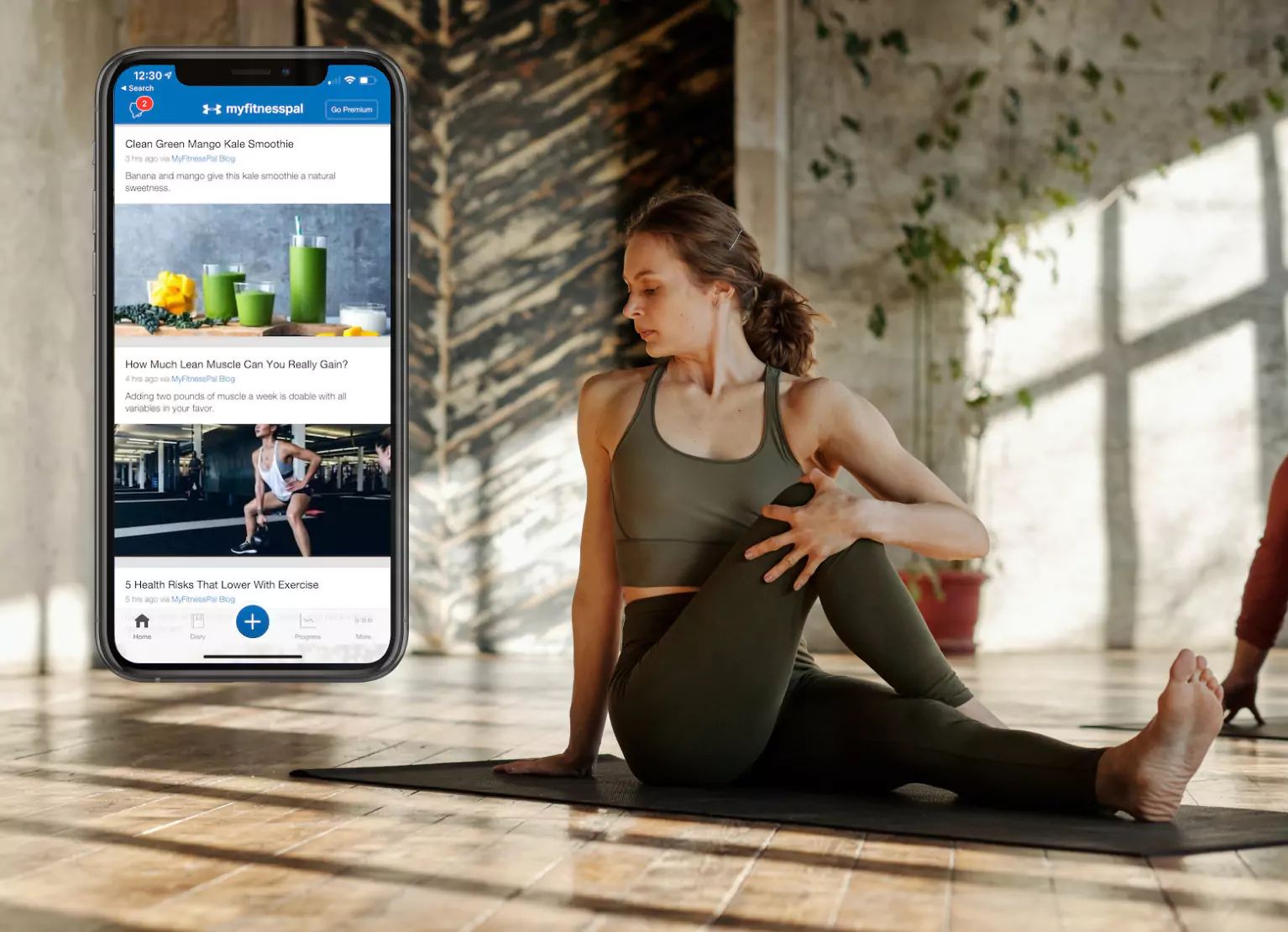
MyFitnessPal isn’t a fitness app in the exercise sense, but it can help with weight management and calorie counting. It allows you to track the foods you eat and see how they match your weight loss goals.
The system has a nifty graph of your weight, telling you how you’ve done over time. It’s simple but requires a bit of user input to get the best use out of it.
Pros
- There's an extensive library of foods to choose from.
- Many essential features are available with the free version.
- It has helpful tools for weight management.
Cons
- You have to enter calorie and weight values manually.
- Weight loss and gain predictions are possibly inaccurate.
- Entering data manually can be time-consuming.
Find the right Nutrisense programto turn insight into progress.
Go Beyond Glucose Data with Nutrisense
Your glucose can significantly impact how your body feels and functions. That’s why stable levels are an important factor in supporting overall wellbeing. But viewing glucose isn't enough. Nutrisense, you’ll be able to learn how to use your body's data to make informed lifestyle choices that support healthy living.
One-to-one coaching
Sign up to access insurance-covered video calls to work with a glucose expert: a personal registered dietitian or certified nutritionist who will help tailor your lifestyle and diet to your goals.
Monitor and measure what matters
With the Nutrisense CGM Program, you can monitor your glucose with health tech like glucose biosensors and continuous glucose monitor (CGM)s, and analyze the trends over time with the Nutrisense App. This will help you make the most informed choices about the foods you consume and their impact on your health.
Find your best fit
Ready to take the first step? Start with our quiz to find the right Nutrisense program to help you take control.

Carlee's training at Western Illinois University and an internship at the Memphis VA Hospital lead her to a career in outpatient counseling and bariatric nutrition therapy. In these positions, Carlee realized many of the disease states (upwards of 80%!) her patients experienced were actually preventable. She knew she had to dig deeper into preventative health and has since been passionate about helping people translate this complex glucose data into actionable changes anyone can implement into their everyday lives.

.webp)


